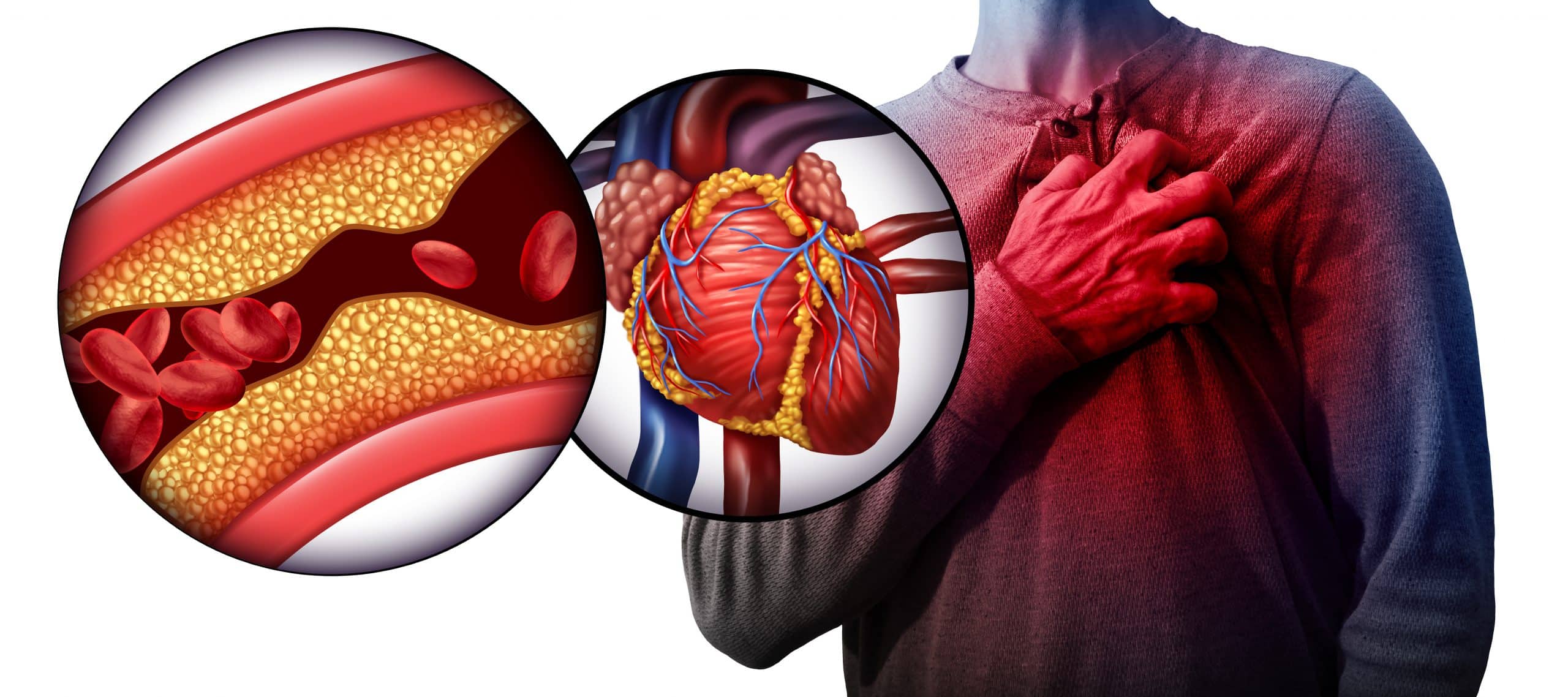04/28/2022
Heart Attack.
Every 40 Seconds, Someone In The US Has A Heart Attack. Learn More About Causes And Prevention.
Heart attacks, also known as myocardial infarctions, occur when a part of the heart muscle doesn’t receive enough blood flow. The more time that goes by without receiving treatment to restore blood flow to the heart, the more damage the heart receives.
Causes Of Heart Attack
Heart attacks occur when the heart cannot receive enough blood to pump the muscle, due to a blockage in the arteries. The blockage is typically a buildup of fat, cholesterol, and other substances that form plaque in the coronary arteries and create difficulties for blood to reach the heart. In some cases, this plaque can rupture and form blood clots, which severely interrupt blood flow and can damage or even destroy parts of the heart muscle.
Heart disease is the main cause of heart attacks, specifically Coronary Artery Disease (CAD). Other causes include a severe spasm, or sudden contraction, of coronary arteries which can stop the heart from receiving adequate blood flow.
Risk Factors For Heart Attack
There are several health conditions, along with your lifestyle, age, and family history that can increase your risk for heart disease and heart attack. There are multiple types of heart disease which can increase your risk of heart attack. Almost half of all Americans have at least one of the three main risk factors for heart disease: high blood pressure, high cholesterol, and smoking.
Although some risk factors cannot be controlled, it’s important to lower your risk by monitoring the factors you can control, such as smoking, physical activity, poor diet, and overconsumption of alcohol. Health conditions that can also be monitored include high blood pressure, high cholesterol, diabetes, and obesity.
Symptoms Of Heart Attack
Heart attack symptoms can vary, so not everyone will have the same symptoms or the same severity of symptoms. The pain associated with a heart attack can range from mild to severe, with some people not experiencing symptoms at all. However, the more symptoms you experience, the greater the chance is that you are having a heart attack.
The main symptoms of a heart attack include sudden cardiac arrest, shortness of breath, cold sweat, fatigue, dizziness, and chest pain or discomfort. You may also experience pressure or pain starting in your chest or arms that can spread to your neck, jaw, or back. Other common symptoms include nausea, indigestion, heartburn, and shoulder pain.
Some heart attacks can be sudden, but many people experience symptoms hours, days, or weeks in advance. The earliest warning sign might be recurring chest pain that is triggered by being physically active and lessened from resting. If you believe you are having a heart attack, call 911 immediately.
How To Recover After A Heart Attack
If you’ve experienced a heart attack, your heart may have sustained some damage. This could affect your heart’s rhythm, possibly leading to arrhythmias, which are irregular heartbeats. This also affects the heart’s ability to pump blood to the rest of your body. You may also be at risk for another heart attack or conditions such as stroke, kidney disorders, and peripheral arterial disease (PAD).
By making changes in these areas, you can reduce your chances of future health problems:
- Physical activity- Talk to your doctors about your daily routine to see if any changes need to be made during recovery. Your doctors may ask you to limit work, travel, or exercise for some time while you rest your body.
- Lifestyle changes- Switching to a healthier diet, increasing physical activity after your rest period, quitting smoking, and managing stress can all help improve your heart health. You may also be prescribed medication that promotes better health.
- Cardiac rehabilitation- This is an important program for anyone recovering from a heart attack, heart failure, or other heart issues requiring surgery or medical care. This supervised program includes physical activity, education about a healthy lifestyle, and counseling to help relieve stress and improve mental health.
How CVG Can Help
CVG offers multiple services that can discover risk factors for heart attack and signs of heart disease. At CVG, we perform stress tests that will observe blood flow and test for various forms of heart disease. There are three types of stress tests that we perform:
A treadmill test is a test in which you will walk on a treadmill that gets faster and steeper every 3 minutes. This will stress your heart so that our nurse or doctor can determine your heart rate and blood pressure.
An echo test is performed before and after your treadmill test to determine how well your heart pumps blood.
A nuclear stress test is a treadmill test that is prefaced by an injection of medicine that shows the flow of blood to your heart.
We also offer cardiac catheterization to diagnose and treat several heart issues. If any of these tests determine a problem, we offer treatment solutions such as atrial fibrillation testing and catheter ablation. Learn more about our services here, or schedule an appointment to talk to our doctors.


